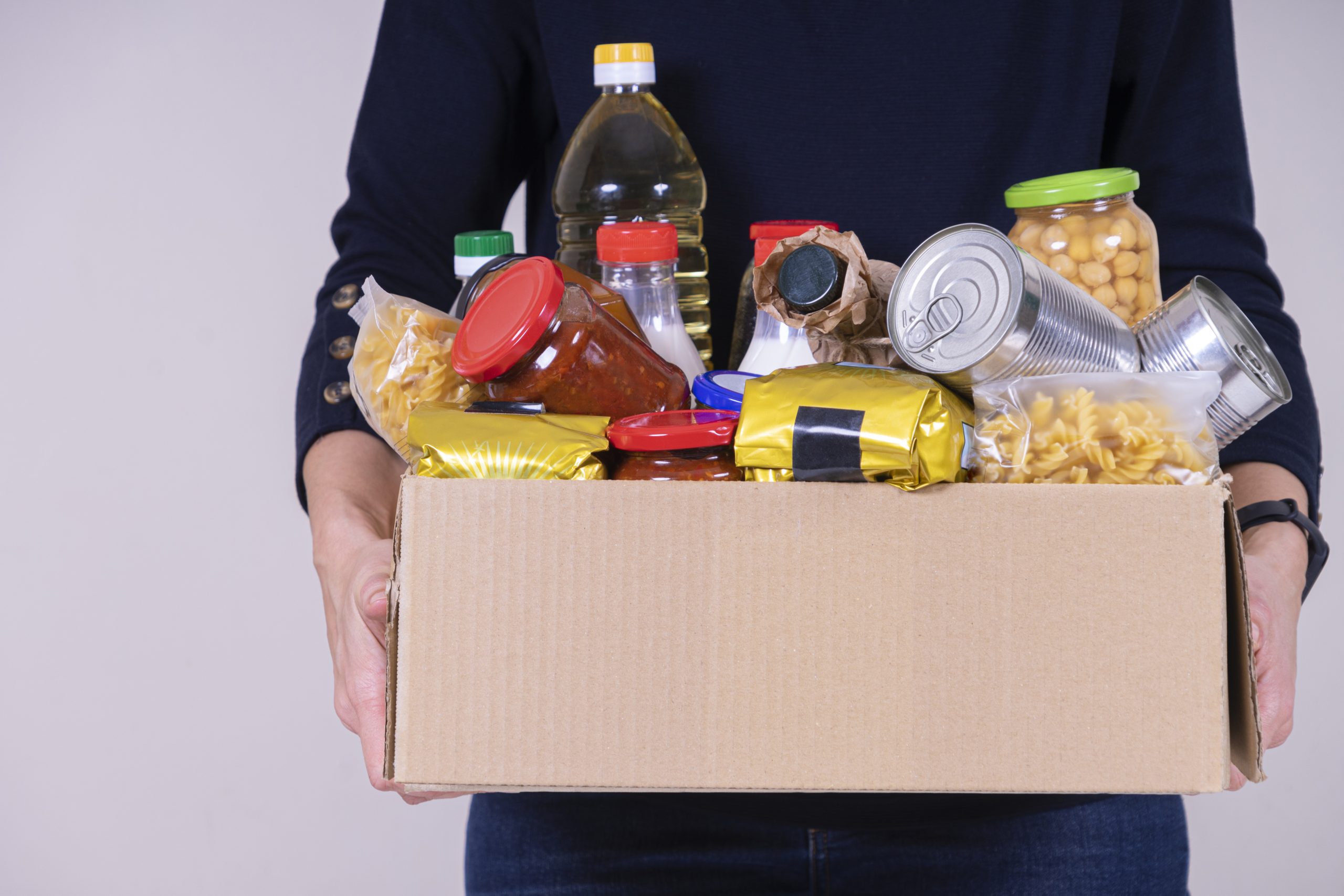In full transparency, the following is a press release from the Massachusetts Attorney General’s office submitted to SOURCE media. (stock photo)
***
[broadstreet zone=”59982″]
BOSTON – With gas and electric rates climbing to record high prices this winter, Attorney General Maura Healey is collaborating with Project Bread and the state’s regional food banks and pantries on a campaign to educate residents about assistance available to help pay their monthly energy bills this winter.
“As energy costs go up this winter, we want to make sure families know that help is out there to put food on the table and keep the lights on in their homes,” AG Healey said. “We’re grateful to Project Bread and our regional food banks and pantries for partnering with us to educate residents on how they can access the financial assistance and support they need.”
As part of the education awareness campaign, the AG’s Office is working with Project Bread and the state’s regional food banks – The Greater Boston Food Bank, the Worcester County Food Bank, The Food Bank of Western Massachusetts and the Merrimack Valley Food Bank – and their partner pantries to educate customers on the new winter rates and available energy assistance programs.
The campaign includes the distribution of thousands of multilingual flyers and an updated website with resources on how to save on monthly bills.
[broadstreet zone=”59945″]
On Tuesday, staff from the AG’s Office joined volunteers and staff from La Colaborativa in Chelsea to distribute resource flyers in English, Spanish, and Portuguese to families picking up boxes of food ahead of Thanksgiving.
As of September 2022, according to Project Bread, a statewide organization committed to solving hunger, more than a fifth of households with children in Massachusetts were facing food insecurity, with the increasing costs of basic needs like food and utilities likely contributing to the rising hunger rates in the state. According to data from the state’s utility companies, more than 900,000 customers in Massachusetts are behind on their energy bills.
“The winter months can be especially difficult for the 21.5% of households with children in Massachusetts who are experiencing food insecurity,” said Erin McAleer, President and CEO of Project Bread. “Food insecurity is an economic condition and increased utility costs mean less grocery money for these families. We appreciate the opportunity to partner with Attorney General Healey’s office on this campaign to raise awareness about energy assistance, and throughout the year to raise awareness about food resources.”
[broadstreet zone=”59983″]
“Heating costs this winter are expected to surge and put a real pinch on household budgets,” said Catherine D’Amato, President and CEO of The Greater Boston Food Bank. “We are only in November and already we are seeing an increase in the number of new clients visiting our food pantry partners so we are happy to partner with the Attorney General and her team to help spread the word about the new and expanded programs that are available to help our neighbors get through the difficult winter months.”
“People should not be making the difficult choice between whether to have enough food to eat or enough heat to warm their homes during the winter months,” said Jean McMurray, CEO of the Worcester County Food Bank (WCFB). “WCFB and its network of food pantries appreciate the partnership with the Office of the Attorney General to provide essential resources to help our neighbors pay their energy bills this winter.”
“At The Food Bank of Western Massachusetts, we know that the high costs of housing, utilities, and food create real challenges for families struggling to meet their basic needs,” said Christina Maxwell, Director of Programs at The Food Bank of Western Massachusetts. “We are happy to be partnering with the Attorney General’s office to provide information and resources that may be helpful to people, especially during a New England winter.”
“The rising prices of essential items like food and utilities are making this an especially hard winter for our families,” said Debbie Callery, Executive Director of The Merrimack Valley Food Bank. “The Merrimack Valley Food Bank and our partner pantries are happy to partner with the Attorney General’s Office to connect our neighbors with resources to help them pay their energy bills this winter.”
As the ratepayer advocate for Massachusetts, AG Healey’s Energy and Telecommunications Division works to ensure reasonable prices, access to clean energy for all customers, and to educate customers on the available programs that will help them keep the lights on and stay warm.
[broadstreet zone=”59946″]
The AG’s Office is reminding residents of the following resources as part of this education campaign:
Winter Shutoff Moratorium
Residential customers are protected from having their gas or electric service shutoff from November 15, 2022 to March 15, 2023 if the service is needed for heating. More information about the shut-off protections available to qualifying Massachusetts residents can be found here.
Customers will, however, still be responsible for paying bills after the winter moratorium ends and making no payments during the four-month period means a larger bill to pay later.
To avoid falling into debt, the AG’s Office urges customers to enroll in a payment plan that will provide shut-off protection and potentially balance forgiveness.
[broadstreet zone=”59984″]
Utility payment plans
Massachusetts utility companies offer several financial assistance programs for customers. The AG’s Office encourages customers who experience difficulty paying their monthly bills to contact their utility as soon as possible to learn about the options available. Customers should also consider enrolling in budget billing with their utility, which will establish more predictable payments and can help customers better manage utility costs that often fluctuate depending on the season, the price of energy, and customer usage.
Income-eligible assistance programs
The AG’s Office encourages customers who are struggling financially to consult with their utility company to see if they qualify for an income-eligible rate, which provides a discount on the customer’s entire bill. Income-eligible customers may also qualify for enrollment in a balance forgiveness program. Additionally, income-eligible customers can benefit from the federal Low-Income Home Energy Assistance Program (LIHEAP). In order to qualify for LIHEAP and other income-eligible assistance programs, customers must have a household income that does not exceed 60 percent of the state median income.
Applications for LIHEAP for the 2022-2023 heating season can be submitted now and throughout the winter. For help in determining their eligibility for these programs, and to learn more about how to apply, customers should contact their local Community Action Network. Customers can also reach out to the Cold Relief Hotline at (800) 632-8175.
Customers who have a household income that is between 60 to 80 percent of the state median income may be able to seek help from the Good Neighbor Energy Fund.
Recipients of Supplemental Nutrition Assistance Program (SNAP) food assistance benefits may also be eligible for utility discounts and should contact their utility company to inquire about enrolling.

Energy efficiency audit
The AG’s Office recommends that customers contact Mass Save for an energy efficiency audit to see how they can reduce their overall energy use. Customers can also lower their bills by installing a programmable thermostat and replacing outdated light bulbs with ENERGY STAR certified light bulbs. Customers interested in reducing energy usage through solar panels or community solar programs can visit the AG’s FAQ at www.mass.gov/ago/solar.
Beware of competitive suppliers
The AG’s Office urges customers to beware of deceptive competitive electric suppliers who may try to take advantage of this winter’s record-high rates with false promises of savings.
A report released by the AG’s Office in April 2021 showed that Massachusetts customers who received their electricity from competitive suppliers were charged $426 million more on their bills than if they would have stayed with their utility.
More information on electric prices and the available assistance programs are available on the AG’s new resource flyer which is currently available in Spanish, Portuguese and Mandarin and will soon be available in Haitian Creole, Cape Verdean Creole, and Vietnamese. The flyers will also be provided to community organizations including consumer advocates, municipal associations, and nonprofit service organizations across Massachusetts. Customers who have concerns about their utility rights should contact the AG’s consumer assistance hotline at 617-727-8400 or file a complaint online.
Anyone who is having trouble paying for food is encouraged to call Project Bread’s toll-free FoodSource Hotline at 1-800-645-8333, which provides confidential assistance on connecting with food resources, including SNAP benefits, in 180 languages and for the hearing impaired.
[broadstreet zone=”59948″]


